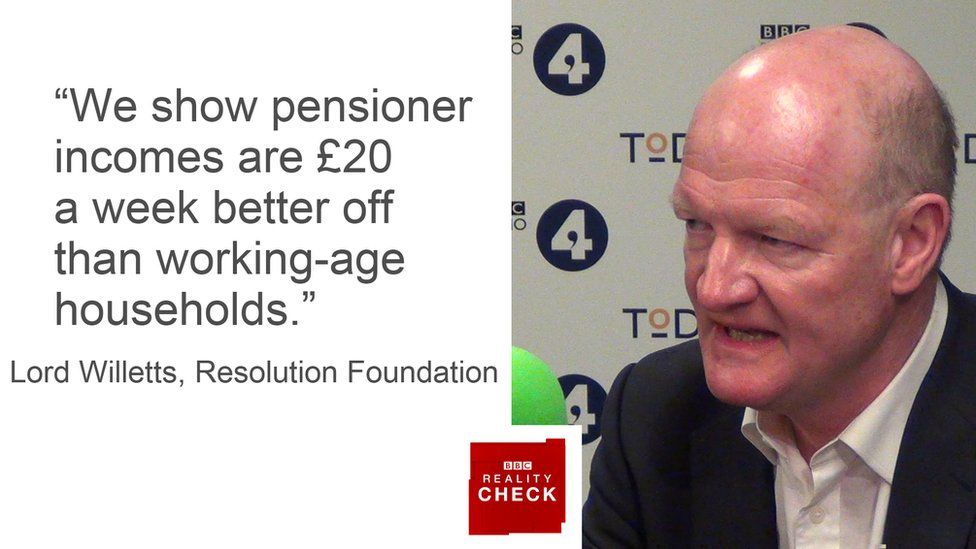Reality Check: Are pensioners better off than workers?
- Published

The claim: Pensioners are on average £20 a week better off than working-age people.
Reality Check verdict: The calculation made by the Resolution Foundation is for household income after housing costs. Before housing costs are taken into account, working-age households still have higher incomes than pensioner households.
News that pensioner households are now better off than working-age families was widely reported on Monday.
There have been reports for some time that incomes for pensioners have been growing faster than those for working-age people, largely as a result of pensions being protected by the triple-lock, while many working-age benefits have been frozen.
The triple-lock guarantees that pensions rise by the same as average earnings, the consumer price index, or 2.5%, whichever is the highest.
But the report from the Resolution Foundation, external was the first suggestion that the retired had actually overtaken the working-age group.
The figures referred to the "typical pensioner household", by which it meant the median, which is the household for which half of pensioner households have higher income and half of them have lower incomes.
In this case, a pensioner household is one in which at least one member is of pension age or older (65 for men, 64 for women) whether or not that person is working. There can also be working people in a pensioner household.
But the important factor that has been mentioned little in the coverage is that the measure of income that the Resolution Foundation is using is one for income after housing costs have been paid.
This chart from the Resolution Foundation gives income after housing costs for the median pensioner and working household as well as a richer one and a poorer one.
Taking income after housing costs makes a huge difference because pensioner households are more likely to own their own homes and to have relatively small or paid-off mortgages.
The report says, for example, that 70% of the silent generation (born 1926-45) own their homes outright, while just over 40% of the baby boomers (1946-65) own theirs, with another 30% still having mortgages to pay.
The median income for both working-age and pensioner households is just over £20,000 a year, so housing costs would make a big difference.
Also, the figures do not take account of people in care homes, which would be expected to increase housing costs for those of pension age.
The Resolution Foundation confirms in the report that before housing costs are paid, the median working-age household still has a higher income than the median pensioner household.
- Published13 February 2017
- Published13 February 2017
- Published24 March 2016
- Published6 November 2016
- Published19 July 2016